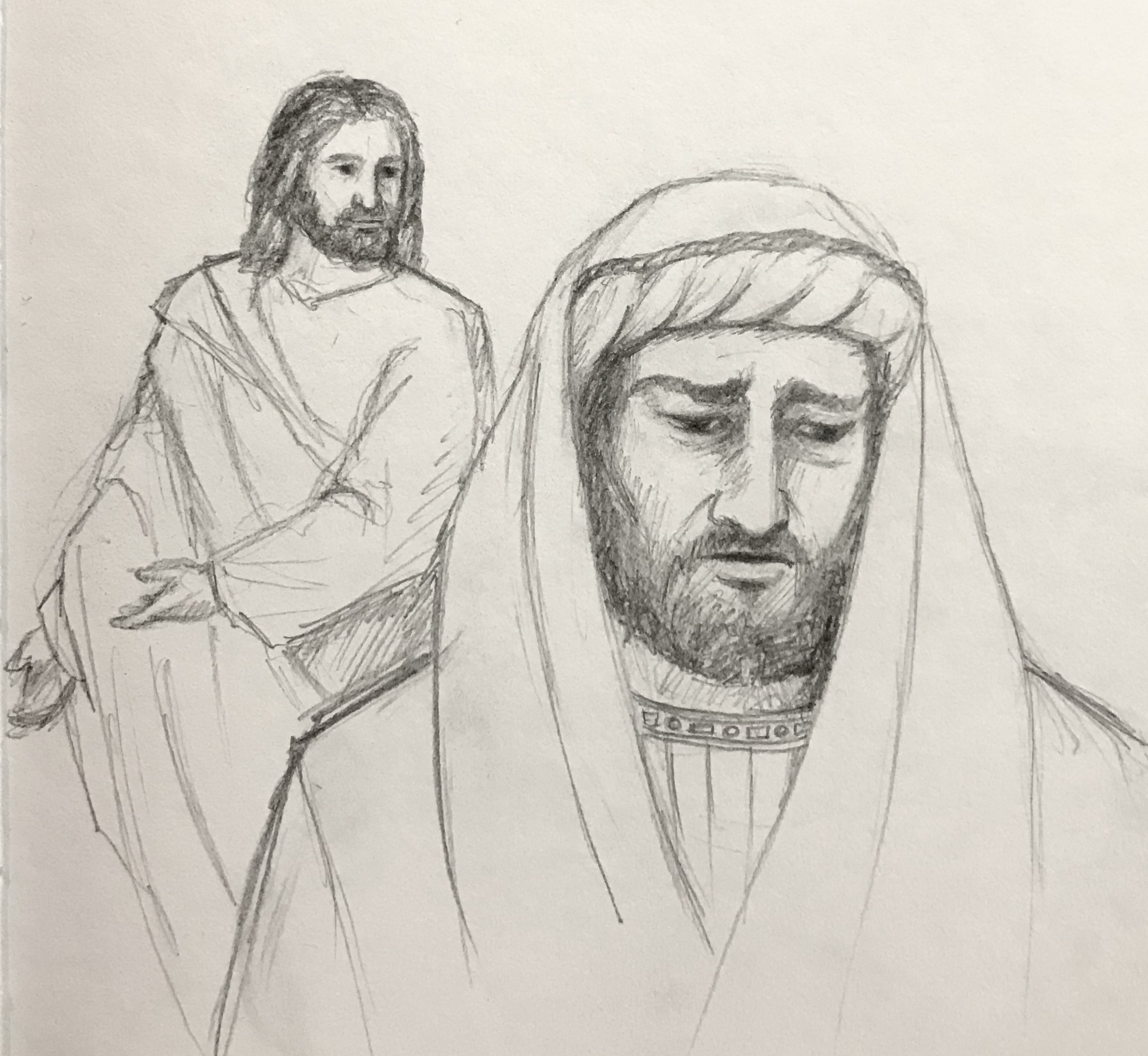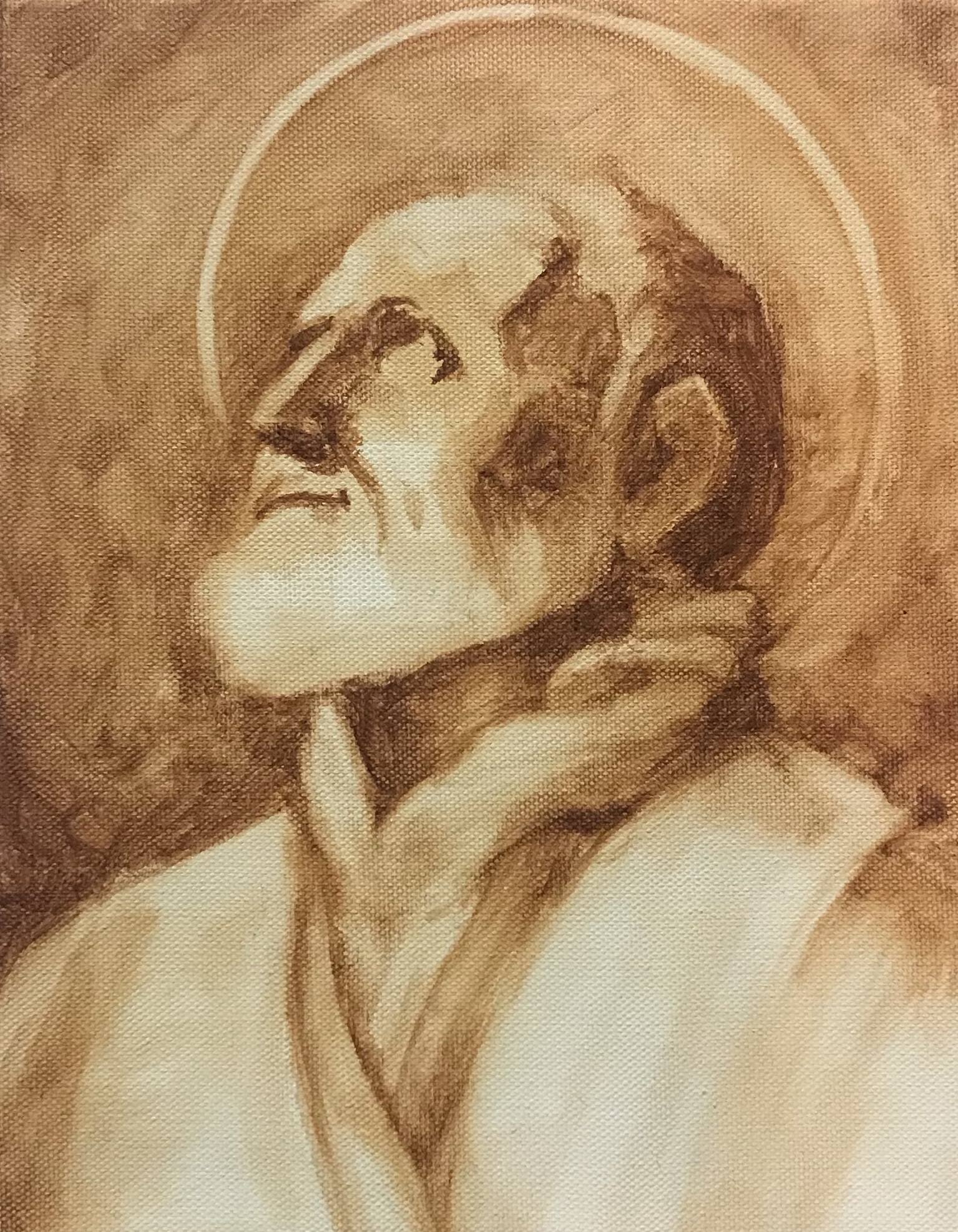
The rich young man somehow knows enough to call Jesus good, but something is lacking in his discernment. The rich young man wants to live out his human life in comfort, following the rules (basically) so that the comfort can continue in eternal life. He is asking Jesus for a confirmation that he is already on the right path. He isn’t actually looking for guidance, he is completely self-assured. Jesus first corrects him on his perception of goodness. The rich young man has a very mundane, human, and horizontal perspective on life. Jesus is not simply another human teacher, He is God. When the rich young man says, “good master,” what he is really saying is, “I’m good, and you’re good just like me.” Jesus tells him that no one is good but God alone. This criteria for goodness is a bit upsetting: it means that no one is “a good person,” but we say and think that all the time. Our petty little human goodness is rot compared to the rich goodness of God.


